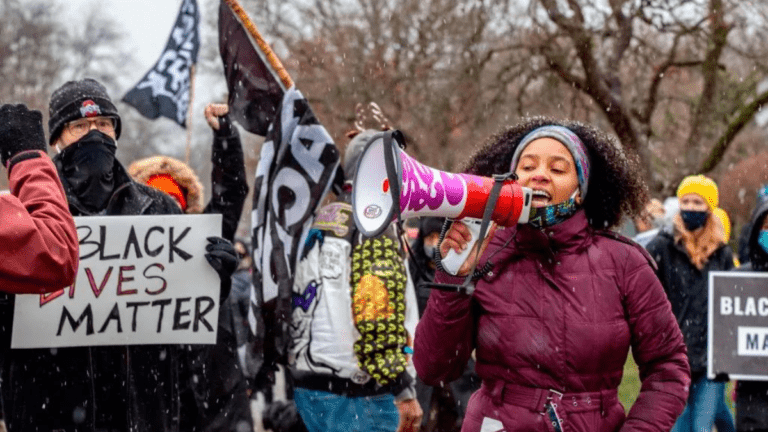
A world devoid of black Twitter is a world devoid of robust, timely, and accurate information sharing about police brutality in the Black community.
Deion Scott Hawkins, Emerson College
Before the deaths of George Floyd, Breonna Taylor, Philando Castile, and Sandra Bland sparked national attention, their names were simply Twitter #hashtags.
In 2020, Twitter was critical to the global spread of historic Black Lives Matter protests against police brutality.
However, Elon Musk’s takeover of Twitter has called into question the future of Black Twitter. According to social media users, the takeover has already had an impact on the Black social media community.
For example, multiple sources report an almost immediate increase in the use of the N-word, and Musk has allegedly mocked Black Lives Matter in general, as well as the group’s apparel found at Twitter’s headquarters in San Francisco, California.
The impact of Musk’s takeover is so obvious that Black Twitter held its own satirical funeral.
The majority of user tweets are clearly humorous, which is a well-documented coping strategy for the Black community. However, as a Black professor who studies communication and police brutality, I am terrified at the prospect of Black Twitter’s demise.
It all begins with a hashtag.
A world devoid of black Twitter is a world devoid of robust, timely, and accurate information sharing about police brutality in the Black community. As a result, I believe the community will be systemically silenced and subjected to higher levels of police-related violence.
Black Twitter is a Twitter digital community that embraces and celebrates Blackness while circulating topics, stories, and images that are directly related to and affect the Black community. Geographical location or membership do not define Black Twitter.
Instead, it refers to a culture and community that Black Twitter users co-created. Black Twitter is used to offer cultural critiques and to discuss historical events.
According to Pew Research, African Americans who use Twitter are twice as likely (68%) as their white counterparts (31%). Furthermore, 85% of Black users believe social media is an important tool for creating long-term social movements.
Finally, Nielsen reports that 19 million, or 28%, of Twitter’s 67 million users are African Americans. And roughly one in every five African Americans uses Black Twitter.
According to a 2016 study, the main goals of Black Twitter users committed to BLM were education, amplifying marginalized voices, and advocating for structural changes in policing. My dissertation clearly demonstrates that the Black community, particularly Black millennials and Gen Zers, rely heavily on Black Twitter for information about police brutality.
I go into more detail about this on the Opinion Science Podcast and Emerson College’s Campus On The Common Podcast.
One of the Black community’s primary information channels would not exist without Black Twitter.
First, some breaking news.
For many social media users, Black Twitter is the first place they hear about police brutality stories.
Indeed, I’ve discovered that hashtags have taken the place of breaking news headlines for some Black Twitter users.
“Honestly, I hear about most cases on Twitter,” one interviewee told me while I was conducting research. “It’s always on Twitter before it becomes main headline news. News will cover it a day or two after I’ve seen it on Twitter.”
A hashtag is no longer just a name on Twitter. Instead, it frequently blossoms into public awareness campaigns calling for police reform. Hashtags are frequently used as mobilisation catalysts, and without Twitter, mobilisation would be much slower.
Twitter is frequently used to record and share videos of police brutality. For example, the video of George Floyd’s death in police custody was first shared on Twitter, and then it spread to mainstream media.
Black Twitter, in my opinion, is the fuel, while mainstream media is the wheels on the information highway.
Real-time video images
Several interviewees in my study indicated that Twitter is the preferred message channel on police brutality because of its authenticity.
Many people believe that Black Twitter avoids the perceived racial biases of mainstream media outlets that rely on police sources for information. Instead, users are exposed to firsthand accounts, which are frequently recorded by other Black users.
“I find Twitter to be the most credible, particularly firsthand accounts and videos,” one interviewee said. “There’s something about watching videos that makes it seem more real. There is less time for someone to change their story.”
“I definitely prefer videos on Twitter over hearsay or the news,” said another interviewee. I don’t believe the news. However, videos are reliable evidence. That is significant, in my opinion, because there are numerous cases where people are killed by police, and we would not have any evidence if it weren’t for videos on Twitter.”
Twitter may be a digital playground for some, such as Elon Musk, to increase their wealth and magnify their egos. However, Black Twitter and the information it provides are literally life and death.
From Pearl Pearson to Breonna Taylor, Tamir Rice, and Philando Castile, the use of Twitter was critical in gathering evidence, gaining public attention, and advocating for reforms.
Police brutality persists in a world where cameras are always on and information is constantly shared. Consider what might happen if there are fewer places to make those images and unvarnished stories public.